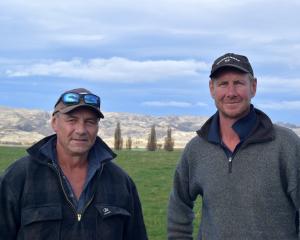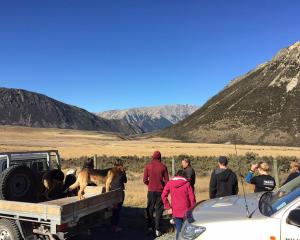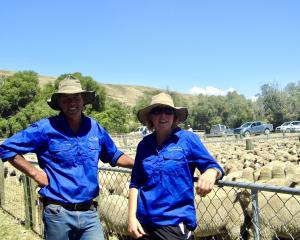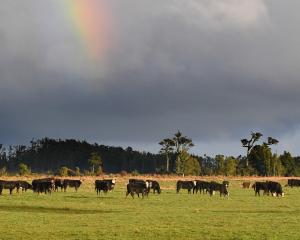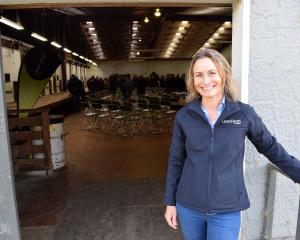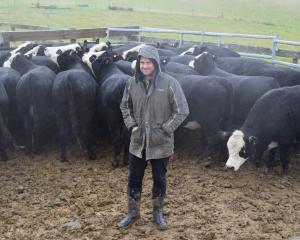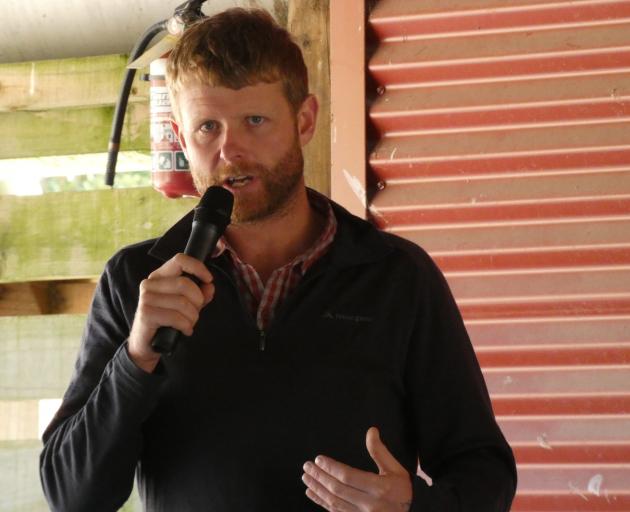
Many dryland sheep and beef farmers have already cut their losses by selling stock early for less revenue and will carry fewer animals over winter.
Making early decisions before it was too late was the theme of the day for about 70 farmers attending Beef + Lamb NZ’s (BLNZ) "Farming for Profit: When will it rain?" field day at Windwhistle, hosted by Braided Waters Farming.
Many of them have their minds on getting through the winter and are resigned to buying in costly extra feed or finding grazing to offset drought-depleted pastures, kale and other crops.
BLNZ chairwoman Kate Acland said it had been an "incredibly" challenging summer for many reasons for farmers.
"It feels like the perfect storm at the moment, it’s not just the weather coming at us, but it’s price and market conditions and on-farm inflation, so sometimes I suppose the easiest thing to do is just put your head down and stay on farm so well done for coming out."
She said BLNZ was going through a strategy refresh and focusing on tools to give farmers to succeed, both now and into the future.
The field day had been put together at short notice to help farmers deal with drought decision-making.
No farmers were able to raise their hands when MacFarlane Rural Business farm management consultant Mark Everest asked if they would reach predicted yield budgets for winter feed crops.
"When we’re reaching the ... 80% [of predicted yield] camp the world’s actually not such a bad place to be and we can solve most of our problems. ... For those of you, which is roughly half, that are not going to be anywhere near 80% by the looks of things, today will hopefully drive home some messages to think about and start making some steps rather than later."
He said farmers should have plans in place, otherwise there would be big problems.
Soil temperatures were cooling typically one degree a week as feed growth was stopping at six degrees and without soil moisture, farmers were running out of time to grow feed even if there was rain.
"The unfortunate reality is we are about 900m down a 1km runway and we are fairly well in the poo."
The drought is being called a one-in-five to a one-in-10-year event.
Mr Everest said farmers should work out their honest position, rather than relying on a "smoke and mirrors" idea of where they would like to be.
Proactive decisions were needed for both feed and stock to look after nucleus flocks and herds. Reviewable plans should be made with the support of accountants, bankers and support farmers, he said.
They should have people in mind to leverage other feed and identify trigger points to move to plan-B or C decisions.
He said all of the decisions would have a call on capital whether it was paying for grazing, buying in feed or selling stock light.
"The bank is obviously the first place you want to go to. I’ve spoken to all the major trading banks and they are all going to support farmers through this.
"Obviously, there will be some challenges with some of that stuff. What do they need? They just don’t want you on the blower saying ‘I need $200,000’. ‘No’ will be the answer. But if we come through with next year’s budget and a couple of sentences why things are going the way they are going and what we need, the banks are more than happy to support through."
Banks generally needed 10 days to process credit of more than $200,000.
Plans would include working out the energy value of grain, hay, sheep nuts or grazing options compared with cost.
Hard decisions such as whether to mate all of their replacement stock or unload some of them would depend on the pressure they were under.
Trading stock would go first and decisions would be made on whether to hold cull stock or next year’s cull stock.
Mr Everest said sheep and beef operators wanted to prioritise their stock classes and their main focus should be on next year’s income.
Delaying mating could be a "kick the can" option as it would delay the increase in feed demand, but selling a later lamb would result, and mating would have to be brought forward the following season.
Mr Everest said there was no point talking about restocking at this stage as there were other priorities to get through first.
"Keep a level head. We have been here before, we will be here again, come out the other side."



